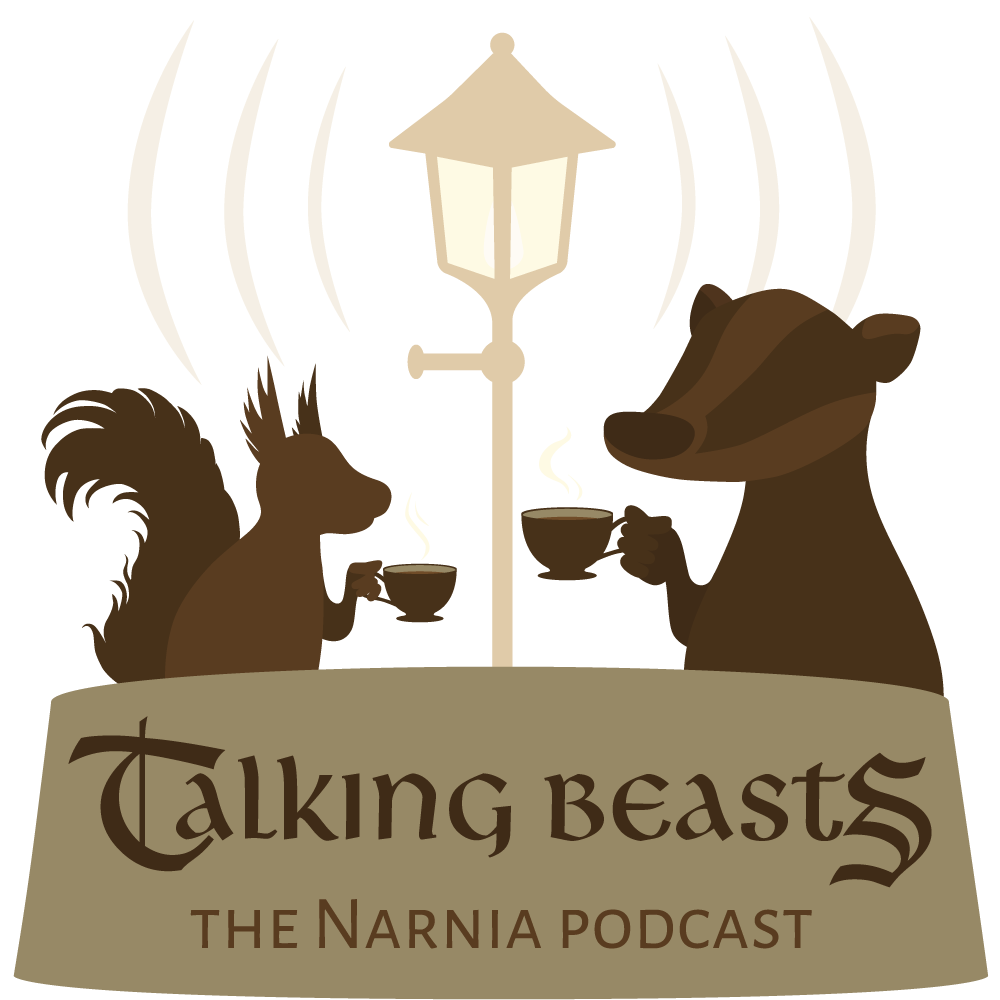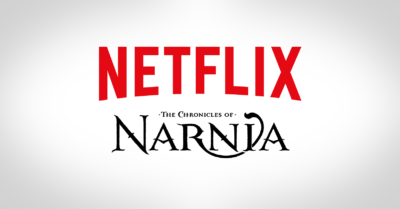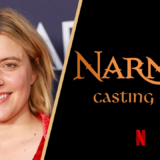Rob Holding Interviews Adamson and Johnson
Our Kiwi friend Rob Holding (Rhema Radio) has posted a great video interview with director Andrew Adamson and producer Mark Johnson. In the interview Adamson discusses his work on the series and how he’ll be letting go. Rob also asks him about how his faith played a role in making the film.
UPDATE: Jints writes in to tell us about some new video interviews posted at Empire Online. In Andrew Adamson’s interview he talks about all the ‘chatter on the internet’ when the fans first heard about the flirting between Susan and Caspian.
Thanks to Coracle for the following transcript:
Rob Holding interviews Andrew Adamson & Mark Johnson on Shine TV 19/6/08
R: Thanks for joining us.
A&M: Thanks
RH: Douglas Gresham says it’s a poorer story that makes a better film; why is that?
AA: It’s one of those things I think when you’re faced with greater challenges you have to come up with greater solutions. And definitely this, certainly structurally, the story is a little weaker; it didn’t have quite the same drive to it, or the straight through cinematic line the LWW had, and it didn’t have that sort of epic symbolic levels of good and evil. In fact consequently all of those things I think challenged us to come up with some interesting solutions and it sort of deviates structurally a lot more from the book, but I think it is, because of that, a lot more exciting.
RH: Apart from taking time off with the family, was there any point in the whole process of Caspian when you thought “I wish I’d said yes to directing the next one”?
AA: Yes there is, and there still is, you know – letting go is a hard thing, and Dawn Treader was also one of my favourite stories, so there was definitely aspects of that. There was a time when I thought “Should I just jump to Dawn Treader and skip Prince Caspian? Or should I combine them? And then what” – that kind of thing. I’ve been through this a few times on films, certainly on Shrek 2 I think I went through – part of the process of trying to make it work gets you emotionally attached and you end up making something you love. So now when I went back and re-read Prince Caspian, I enjoyed it in a whole way that I didn’t use to. So it’s kind of, I’ve become much more emotionally attached to this film.
RH: One of the ladies at work who saw the movie hadn’t read the books, so there was a little non-sequitur for her – she said “I had to go back and read the book to find out what parts of the movie were about”. So we’re definitely talking sequels, aren’t we, it’s not a stand-alone movie?
AA: I’ve had both, I’ve had people who’ve seen it as a stand-alone film who’d never read any of the books but who’ve had no problems, and certainly said they want to go back and see the other one, because there’s a certain mythology we tap into. And I do think of the Narnia series as a greater mythology, of which we’re telling sort of segments or stories out of that mythology, because the one character throughout them all is Aslan – he’s the only character that goes throughout them all.
There are certain assumptions made – you know, I expect the audience to have some sense of who Aslan is, I expect the audience to have some understanding of the Stone Table being a significant place, they don’t necessarily have to know what happened there. But to get the full emotional impact they have to know it was somehow significant. But the feedback I’ve been getting is that people have picked up on that, but it’s actually made them want to go and learn more about it, which I think is great.
RH: I’m not quite sure who should answer this, is there an order for the movies being made? Because obviously Dawn Treader comes next, Silver Chair comes after that, but you’ve got Horse and His Boy before that, and…
MJ: Once we’d made the decision to make LWW first, we were locked into Prince Caspian, because we’d cast the four Pevensies, and if we hadn’t done that then we wouldn’t have been able to do it with the same cast. And then once we’d done Prince Caspian it became clear that because of the two younger Pevensie children that we’d have to do VDT next. And somewhat after that (we do have Eustace in Silver Chair) after that point we can pick and choose a bit.
AA: And then it’s a question of “Do we do HHB and have a little side-story , because the kids would be the right age to play the older Pevensies in that? Or do we go right back and do something like The Magician’s Nephew, which is a really wonderful, mystical chronicle?”
MJ: For many of us it’s one of our favourites.
AA: It’s one of my favourites, yeah.
RH: Are you – in for all of them?
AA: I can’t imagine letting go entirely.[laughter]. Can I just.. [holds his hands palms towards MJ as a sound shield] Maybe! [more laughter]
MJ: [pretends to be getting his cell phone] Hold on, I just have to call Disney.
RH: Just give Walt a call on that one.
RH: You’ve developed the children’s characters a lot more in Caspian than in the Wardrobe, but Lewis didn’t really do that until Dawn Treader, he didn’t really start developing characterisations. How hard was that to figure what they’d be?
AA: It wasn’t that hard. I tried to, as with everything, draw from the book. An example I had last time was that in C.S. Lewis’s book Edmund was just a bad boy. And I wanted to explain about why he was a bad boy, and kind of embellished it a little bit and expanded it to be the story about his father being away, and his older brother had stepped into the paternal role, and how he resented that.
And that sort of created this reason why he went to the White Witch and turns back on his family.
So in this one I wanted to do the same thing, to look at what the kids did in the story, and then treat it as if they were real kids. And the philosophy I always applied to it was if this was a real story that C.S. Lewis had written a book for children about, and I was making a movie of the real story. So it would have a little bit more of that character there.
RH: It comes out in Peter, for instance, in front of the castle gates when the gate comes down – that’s a brilliant scene.
AA: Thank you very much. It’s a moment that still gets me; it’s an emotional moment. There’s a really strong thing in here about – obviously there’s a lot of war in this film, and there’s a really strong message about why you’re fighting. And Peter initially is doing it for kudos and ego, Caspian’s initially doing it for revenge. And when – they ultimately only win when they’re fighting for the right reasons.
RH: Andrew, you’ve appeared a little reticent in the past to talk about the Christian aspect of your upbringing.
AA: No, not really reticent, I just don’t think it’s a really important thing to talk about; it’s also something that’s very personal, you know, I think religion/spirituality is a personal issue. And I also have a thing about bringing my family into publicity. This is something I have chosen to do, this is part of what I do, but they haven’t necessarily made that choice, so I tend to try and leave them out of it as much as I can.
RH: Were there aspects though, in both Wardrobe and Caspian where a memory…?
AA: The main thing I found is having that sort of a background and upbringing really gave me an understanding of the theology. And in the discussions that I’d been having, and certainly with Doug, at least I was coming at it from a point of knowledge and a point of understanding, which I think has been really helpful in being sensitive to all the issues there are in the book. Because some of them are quite subtle, and some of them are more mythological than they are necessarily religious. But in each case they were something that had been important to C.S. Lewis, and I’m appreciative of having that background to be able to at least ask the right questions, even if I don’t know the right answers.
RH: There is though from a Disney aspect – I know in The Gospel According To Walt Disney, by Mark Pinksy [?] where he says Walt Disney didn’t want to promote any particular religion over another one, and that the Narnia Chronicles would kind of….
AA: I would disagree with that really – not that Walt Disney may have made that statement, but that the Narnia Chronicles IS promoting any particular religion over any other. One of the things we’ve seen, is that this was one of, if not the biggest hit ever in Malaysia. (That’s The Lion the Witch). I think one of the reasons is the stories – C.S. Lewis was first and foremost a mythologist, and he said that for him that Christianity was a true myth. He operated from this point of mythology. And because of that I think he was dealing with a lot of different stories, some thousands of years old, that deal with very true human conditions. And he’s tapping into conditions that are as true to us today as they were then. And I think that’s one of the reasons it’s actually reached across cultures. The books have been read, in I think 27 different languages, different cultures, by young kids who don’t even know what the word allegory means. So I think first and foremost they’re good stories, and then they’re stories that different people can take different things from.
RH: And good movies.
AA: Thank you very much [laugh].
RH: What was it like directing Sergio Castellino, because he comes across as a man that would definitely know how he would play the scene.
AA: You know he’s a very collaborative person, and you know, he’s a director as well, so it’s really nice to work with any good actor, but to work with an actor who’s directed who you can learn from – and there were times when he’d say, “Andrew, Andrew, I’m doing something in this scene; you might want to, you know, [hands sketch a close frame around head and shoulders] come closer.” It was great [laughs] He’s a wonderful wonderful man.
RH: And, hard to say goodbye to “Peter” and “Susan”?
AA: Yeah, well, for me it’s goodbye anyway, but yeah…
MJ: We have talked to people who have seen the ending. In fact we did one test screening in California, and everybody was asked what they thought of the ending. They said they liked it a great deal, but it made them so sad. We asked, why was that? And they were so unhappy- these were people who weren’t prepared for the fact that Peter and Susan couldn’t come back. It was quite an emotional moment, and still is, for much of the audience.
AA: And for us shooting it, that was one of the scenes that none of us had trouble tapping into the emotions – you know for Anna and William and I, the fact that we were saying goodbye in the film made it really easy to find those emotions.
MJ: Luckily it wasn’t their last scene, or it really would have been…. [laughter] Do you know that Andrew is a producer on the next film, or will be, so it’s not like he’s completely left.
AA: I AM? [laughter]
RH: Quick, get it on paper somewhere.
AA: No, I will definitely stay involved; it’s like with the Shrek films, once you’ve birthed something, it;s hard to let it go and grow up. And you kind of have to still be there and help it along.
RH: Gentlemen, thanks for your time.
AA: Thank you very much; good to talk to you.
MJ: I enjoyed it. Thanks!





